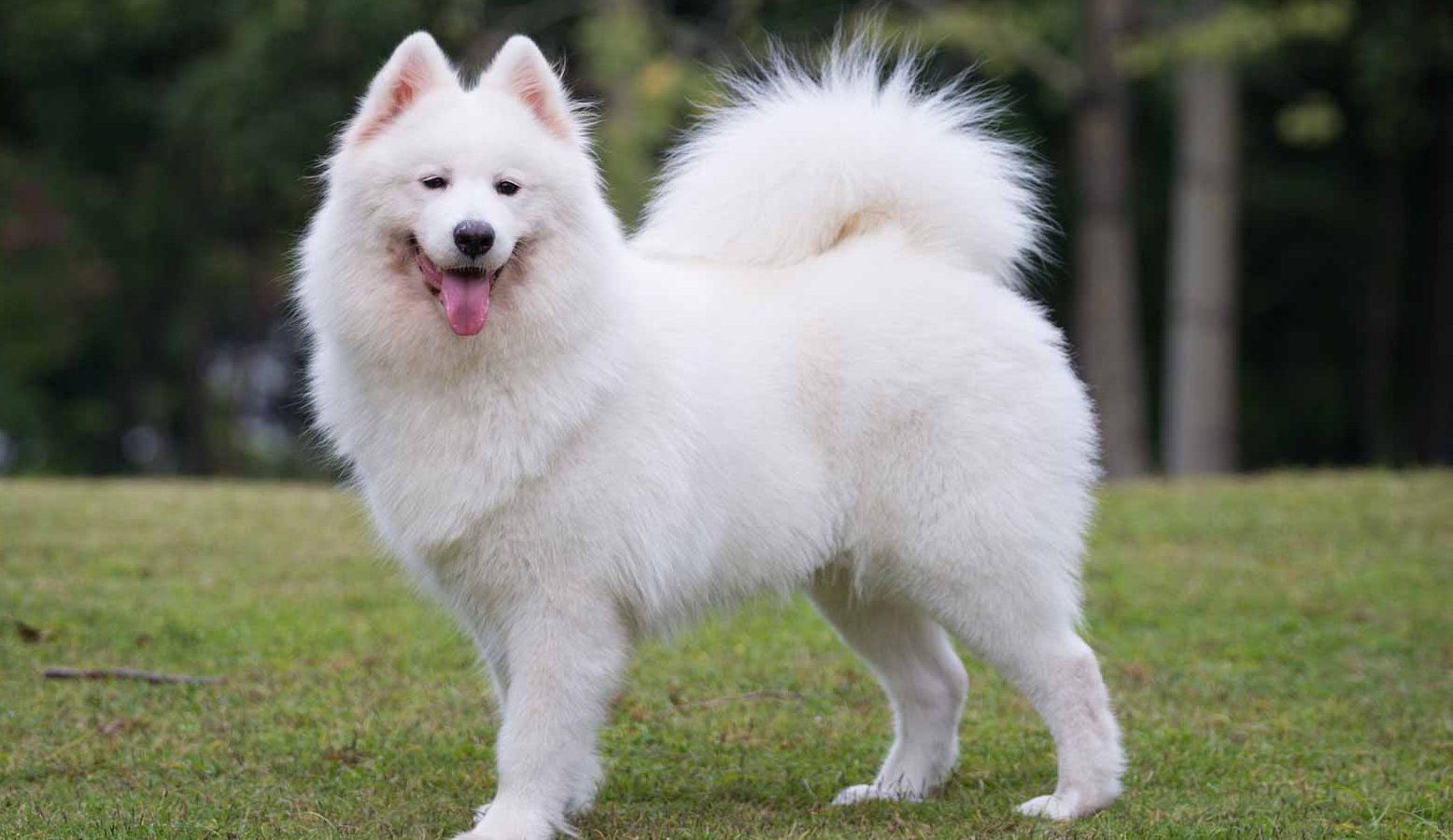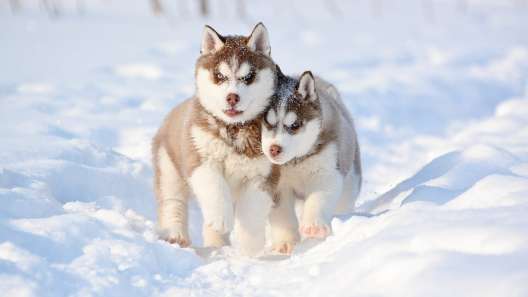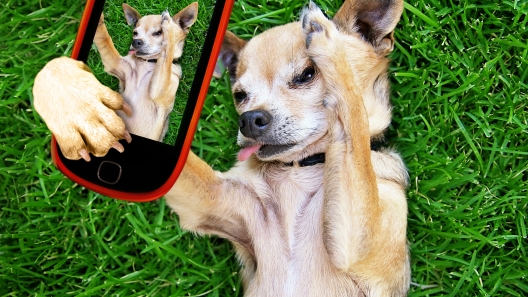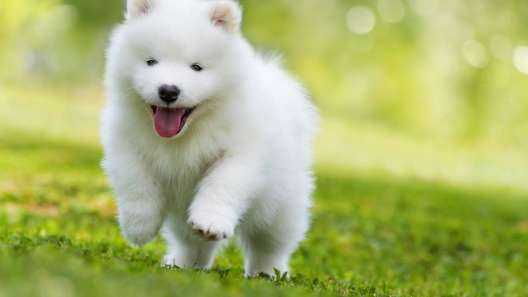-
Activity Level:
high
-
Shedding Level:
moderate
-
Grooming Level:
high
-
Trainability:
high
-
Good for Novice Owners:
moderate
-
Adaptability:
moderate
-
Kid/Pet Friendly:
often
-
Prey Drive:
high
-
Watchdog:
very alert
- Average Size: Medium
- Average Lifespan: 12-14 years
- Registered?: aca, akc
Samoyed Dog Breed Information
Overview
Temperament
Adaptability
Health
Owner Experience
Grooming
Activity Level
Size
Life Span
Did You Know?
The Samoyed, affectionately called the Sammy, is a graceful medium-sized snow dog breed that is known for their thick, all-white fluffy coat. The Samoyed originated in Siberia where they were bred to pull heavy loads across the frozen Siberian tundra, act as watchdogs, and assist as hunting dogs and stock dogs.
One of the facts about Samoyeds is that they were named for the semi-nomadic people who migrated to Siberia a thousand years ago. They were called the Samoyede and are credited with breeding the original Samoyeds. Arctic adventurers are credited with bringing the Samoyed to England in the late 18th century. The AKC recognized the Samoyed in 1906 as a member of the Working Group.
Samoyeds tend to be docile, have gentle natures, and are very loyal to their families. Their mouth has upturned corners that reduce drooling and also help give them a perpetual smile. “Smiling Sammies” are smart, social dogs that crave love and affection. They can also have a mischievous streak.
Well-socialized Sammies tend to be friendly towards strangers, get along well with other dogs, and absolutely love children. They have a high prey drive though, so they may not do as well with other smaller pets. They are usually better with small pets they have been raised and socialized with.
Their sweet disposition makes them great family dogs and they are very alert, which makes them good watchdogs. Because they can be prone to barking, especially if they are not socialized well, it’s important to socialize your Samoyed puppy early and often and to train your dog to stop barking early on.
The Samoyed is a moderately adaptable dog breed. Because of their energy level, need for affection, and desire to roam and run, they do not tend to adapt as well to apartment living. They do best in larger homes with securely fenced yards where they can run.
Due to their coat, they are practically impervious to the cold. So, they do not handle the heat well and they do very well in cold climates. Samoyeds are one of the dog breeds that love winter, and you may even have a hard time getting them to come inside when there is snow that they can play in and lie in.
Because these dogs thrive on affection and bond so closely with their families, they do not like to be left alone for long periods of time. They also get bored easily and need a lot of exercise, so they can become destructive if they are left alone for too long or do not get enough exercise.
Potential health concerns to be aware of in a Samoyed can include cardiac disorders, eye conditions, and hip dysplasia. Good breeding practices and the health of the parents make a big difference in the health of Samoyed puppies.
Reputable breeders will screen their dogs to avoid passing preventable issues to puppies. Make sure you ask about the health and genetic history of the parents. You can also ask about any health tests or clearances that have been done. This type of transparency, along with knowledge about the breed, are qualities to look for in a great dog breeder.
Samoyeds are intelligent dogs that pick up on things quickly, but they can also be strong-willed, have a lot of energy, and get bored easily. This can be difficult for first-time dog owners to handle and navigate on their own.
Puppy training classes or the help of a professional trainer can help a determined first-time dog owner build a strong bond with their Samoyed puppy and handle life with them as they grow. As with any dog, Samoyeds respond best to firm and consistent training that is also loving, gentle, and focused on positive rewards and praise.
Samoyeds are known for their white, fluffy coats. As one of the fluffiest dog breeds, they have a dense, double-layered coat. The undercoat is soft and wooly while the overcoat is long and coarse. A Samoyed’s coat insulates them from the cold. They will shed regularly year-round and will have one or two heavy shedding sessions as the seasons change.
Their coat needs to be brushed daily to remove loose fur, work out tangles, and prevent matting. Bathing is on an as-needed basis. It’s also not a bad idea to have an undercoat rake in your collection of dog grooming brushes. It may also be worthwhile to visit the dog groomer occasionally to keep your Samoyed’s coat healthy and looking great.
In addition to coat care, you will also need to take care of your Samoyed’s nails, ears, and teeth. Trimming nails once or twice monthly keeps them from growing too long and causing issues. Weekly ear checks, along with carefully cleaning your dog’s ears as needed, can help prevent ear infections. Your dog’s teeth also need care just as yours do. Daily dental care along with cleanings at the vet as needed, is ideal and will help prevent painful dental disease later in life.
Samoyeds are high-energy dogs and need a decent amount of daily activity. The Sammy is a working dog that likes to be busy and needs a job to do to be happy and healthy. It’s important they get enough exercise and mental stimulation. Daily walks plus playtime and time to run are usually enough, but they will likely be up for more activity if you are.
As a member of the “sled dog” family, the Samoyed tends to dig if they get bored and, like other dogs, can be prone to destructive behavior if they do not get enough exercise. This is one of the classic signs your dog isn’t getting enough exercise. They also have a strong urge to roam and to run, so any off-leash time should be in a securely fenced area like a fenced yard or dog park.
A fully-grown Samoyed usually stands 19-24 inches tall at the shoulder and weighs 40-65 pounds.
Samoyeds generally live for 12-14 years on average.
The Samoyed was popular with mushers of the early 20th century and were known for being able to pull one and a half times their own weight as a sled dog. Samoyeds also helped Roald Amundsen reach the South Pole in 1911.









